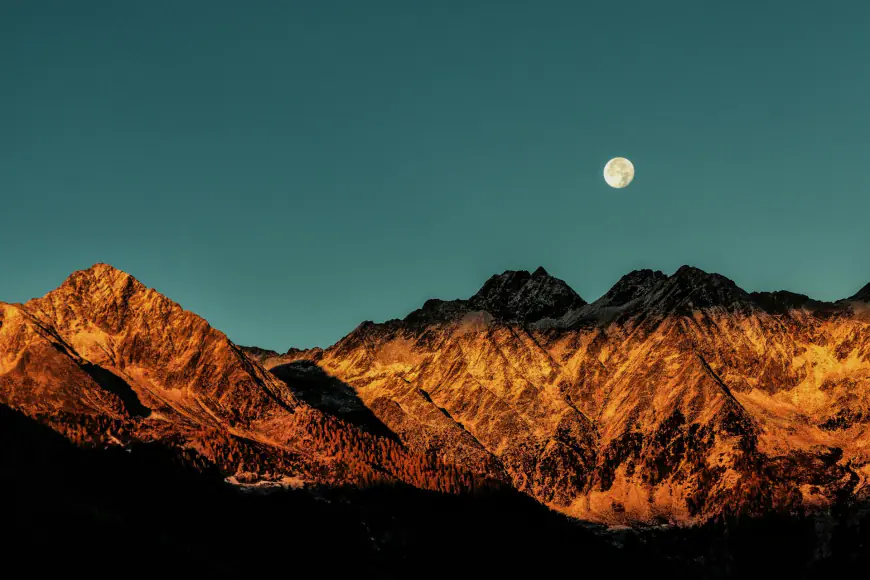The Moon is Beautiful, Isn't It? An Ode to a Timeless Phrase
Delve into the rich history and cultural resonance of the phrase 'The Moon is Beautiful, Isn't It?' Understand its deeper meanings, usage in various contexts, and its significance in art and conversation. Discover the poetic allure and timeless beauty encapsulated in this simple yet profound expression.

In the soft glow of moonlight, the phrase "The Moon is Beautiful, Isn't It?" resonates with profound simplicity and depth, touching hearts across cultures and epochs. This phrase is more than just a casual observation of the night sky; it embodies a rich tapestry of cultural nuances, historical context, and poetic beauty. Through this article, we will explore the multifaceted significance of this phrase, delving into its meaning, usage, cultural relevance, and historical roots, culminating in a poetic tribute to its timeless allure.
The Essence of the Phrase
At first glance, "The Moon is Beautiful, Isn't It?" is a straightforward appreciation of the moon's beauty. However, its implications run deeper, often as a subtle, poetic expression of affection or reflection. The phrase invites the listener to share a moment of contemplation, acknowledging the beauty of the natural world as a bridge to deeper understanding or connection.
Cultural and Historical Context
Historically, this phrase has roots in Japanese culture, known as "Tsuki ga kirei, desu ne?" Its fame is partly attributed to the celebrated Meiji-era novelist and teacher Natsume Sōseki. Legend has it that Sōseki advised his students to use this phrase as a more nuanced, indirect way of expressing their feelings, particularly love, echoing the Japanese aesthetic of subtlety and implication.
In various cultures, the moon has always been a source of inspiration, symbolizing different aspects of life, spirituality, and the human experience. In literature, art, and conversation, referring to the moon's beauty often transcends mere observation, evoking emotions and thoughts, from romantic love to a sense of existential wonder.
Usage and Application
In conversation, "The Moon is Beautiful, Isn't It?" can serve multiple purposes. It can be a conversation starter, a way to shift gears into more profound subjects, or a coded expression of affection or solidarity. In literature and film, it provides a nuanced, evocative way to convey characters' emotions or the ambiance of a scene.
The Purpose and Beauty
The beauty of using this phrase lies in its versatility and depth. It allows individuals to express complex emotions and ideas gracefully and subtly. It also serves as a reminder of our shared human experience, connecting us with nature, culture, and each other through a simple yet profound appreciation of beauty.
Conclusion
"The Moon is Beautiful, Isn't It?" is a phrase that transcends its literal meaning, offering a window into the interplay between nature, culture, and human emotion. It exemplifies how language can encapsulate beauty, feeling, and connection in a few simple words, reminding us of the power of shared moments and the enduring allure of the natural world.
A Poem: When the Moon Whispers
In the hush of twilight's embrace,
The moon ascends with gentle grace.
Its silver light caresses seas,
Whispers through the rustling trees.
"The moon is beautiful," we say,
A simple phrase, yet it conveys
A wealth of feeling, deep and true,
A bridge between me and you.
In its glow, we find a friend,
A silent guardian to the end.
Across the skies, it travels far,
A constant beacon, our guiding star.
So when the moon is full and bright,
And stars are twinkling with delight,
Remember then this phrase so dear,
"The moon is beautiful," whispered clear.
In every word, a world unfurls,
A bond of beauty, shared by all.
For when we speak of lunar light,
We touch upon the infinite.
"The moon is beautiful," whispered clear. In every word, a world unfurls, A bond of beauty, shared by all. For when we speak of lunar light, We touch upon the infinite.









